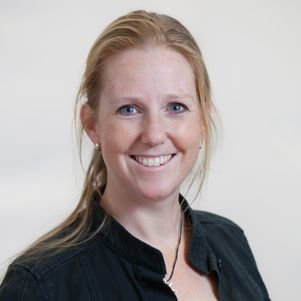Royal couple opens vertical wastewater treatment pilot in New Delhi
On 14 October 2019, King Willem Alexander and Queen Máxima opened a new pilot installation for the purification of contaminated wastewater in Indian drains. The drains in the mega-city of New Delhi act as open sewers, causing health problems, stench and pollution of the river they discharge into. Scientists at TU Delft, together with Indian partners, are developing new technologies for clean water.
Water purification
The extremely polluted Barapullah Drain is one of the largest open sewers in New Delhi. Every day, sewage of three million households flows untreated into the Yamuna River, that also serves as a water supply for irrigation and industry. Merle de Kreuk: “Eventually the Yamuna flows into the Ganges and we’ve all seen those images. A polluted Ganges is a threat to the health of everyone who depends on it for water”.
Working together with India
The opening act marked the start of the second phase of LOTUS-HR, a programme for multidisciplinary cooperation . Within this programme, Dutch and Indian partners are developing robust technologies to purify wastewater locally and to recover raw materials for local use, while paying extensive attention to health aspects. Programme leader and researcher Professor Merle de Kreuk sees great added value in the Dutch-Indian cooperation. “India is a high-tech country with a wealth of knowledge. Unfortunately, a large part of the wastewater in India is not treated at all and there is a lack of wastewater infrastructure in the fast-growing cities. The Indian knowledge about the specific problems and the Dutch integrated approach complement each other nicely. It works particularly well because of our experience in working with universities and companies to achieve innovation. This does not yet exist in India in this way”.
Living Lab
The test site in Delhi is not limited to LOTUS HR technologies. It has developed into a living lab where anyone can test water purification innovations under Indian conditions. Merle de Kreuk: “More and more companies are coming forward to do on-site experiments. Slowly but surely, it is becoming the location in Delhi where systems for decentralized purification can be tested.”
The vertical wastewater treatment wall that was put into operation today by the Dutch Royal couple is a good example of the possibility to show new technologies. Inspired by the increase in vertical gardens in megacities, Professor Merle de Kreuk and researcher Steef de Valk came up with the idea of creating a vertical small-scale wastewater treatment plant. Delft and Indian students have worked on this idea together. “It is a six-metre-high scaffolding with six long planters hanging from it. The dirty water is pumped upwards and then flows back down through the planters as if in a kind of rolling ball track. The plant roots and the stone wool substrate now purify about 250 litres of sewage per day. This could be even more in the future, if the model is improved. In this way, even in places with a huge lack of space, water purification can go hand in hand with the construction of urban greenery.” The pilot installation was made possible by donations from private individuals, made available through the Delft University Fund.
Partners
LOTUS-HR is a collaboration between NWO and the Department of Biotechnology (DBT) of the GOI.
Research partners: IHE, KNAW-NIOO, WUR and VU (NL); IITD, TERI, NEERI (India);
Companies: Drainblock, Ipstar, Kilian Water, Nijhuis Industries, Greenyard, LEAF, the water laboratory, Waste, RIKILT, Heineken, Cityblob and Saxion Hogeschool.
More information
Story of Science CiTG - TU Delft
Website LOTUS HR
Photographer: Anil Kapoor
Contact information:
Merle de Kreuk (Professor at TU Delft), +31 (0)15 27 85274, M.K.deKreuk@tudelft.nl
Inge Snijder (Press Information TU Delft), +31 (0)15 27 87538, I.Snijder@tudelft.nl
Story of Science
Read the Story of Science:
"Water treatment in India: a matter for the local community"
Link
Merle de Kreuk
- +31 15 2785274
- M.K.deKreuk@tudelft.nl
-
Faculty of Civil Engineering and Geosciences
Building 23
Stevinweg 1
2628 CN Delft
Room number: 4.61
